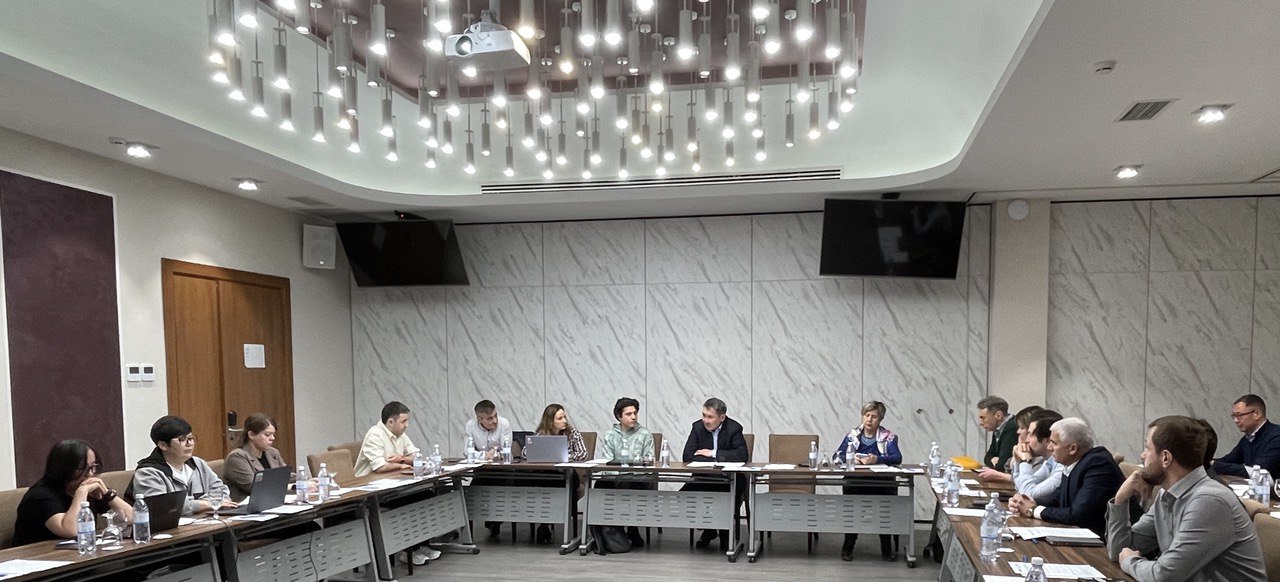On March 19-20, 2024 the Regional Expert Group on Migration and Health and the Central Asian Association of People living with HIV held a Round Table “Migration and Health: ensuring migrants’ access to HIV prevention and treatment services in Kazakhstan”.
Participants gathered to share experience of organizing access to HIV-related services for international migrants as well as for citizens of Kazakhstan staying abroad. During the two-day meeting the following aspects were discussed:
- overview of migrants’ access to HIV services in Kazakhstan
- key problematic areas in international migrants’ access to services
- access to HIV treatment of pregnant foreign women with HIV
- identification of options allowing to provide HIV services to foreign citizens residing in Kazakhstan
- piloting a mechanism of remote registration and treatment of HIV-positive citizens of Kazakhstan who are in migration, as well as questions of cross-border services for migrants
Bauyrzhan Bayserkin, Director of the Kazakh Scientific Center for Dermatology and Infectious Diseases, in his welcoming speech noted the importance and necessity of working to improve access to HIV services for foreign migrants working in Kazakhstan, as well as the need to provide care for citizens of Kazakhstan, even if they are abroad. Sayrankul Kasymbekova, Head of the Clinical Monitoring Department, Kazakh Scientific Center of Dermatology and Infectious Diseases and Tatyana Davletgalieva, National HIV Coordinator of the Global Fund Project Implementation Team presented an overview of the situation with migrants’ access to HIV services in Kazakhstan. Irina Podskochaya, Senior Manager of the Strategy Department, Foundation for Social and Medical Insurance, spoke about insurance and provision of medical services to foreigners in Kazakhstan, including HIV treatment. Daniel Kashnitsky, Chair, the Regional Expert Group on Migratoin and Health presented results of REG’s study – an economic analysis conducted in Kazakhstan with estimates of the burden on the country’s budget for timely initiation of treatment compared to the treatment of conditions caused by late initiation of treatment due to unavailability of ARVT. Representatives of NGOs “Community Friends” and “Revenge” who provide services to foreign citizens, shared key problem areas in foreign migrants’ access to HIV services, in particular an access of foreign pregnant women with HIV to ART.
During the second meeting day, Kirill Barsky, director of the Steps Foundation, spoke about problems faced by the Foundation’s beneficiaries – citizens of Kazakhstan who are in migration. According to the data, migrants become infected with HIV while staying in receiving country, and the only option for them is to receive ARVT from home. Zinaida Abrosimova, coordinator of the Regional Expert Group on Migration and Health, presented the essence of a mechanism for remote registration with AIDS centers for citizens in migration.
Deputy Director of the Tajikistan Republican AIDS Center Alijon Soliev, Ulan Sarymsakov, Clinical Quality Improvement Specialist, Republic AIDS Centre of Kyrgyzstan and Elmar Batyrov, AFEW, Kyrgyzstan described implementation of the mechanism in their countries, which have already adopted documents and are successfully provide remote treatment their patients abroad. Akmal Aliyev, ISHONCH VA HAYOT, spoke about the development of the Order and scheduled stages of implementation in Uzbekistan.
Galia Tazhibaeva, Head of the Clinical Diagnostic Laboratory of the Kazakh Scientific Center of Dermatology and Infectious Diseases, expressed the center’s interest in piloting the mechanism in Kazakhstan, but at this stage emphasized the importance of working through all stages of diagnosing HIV among patients outside Kazakhstan.
As a result of the two-day discussion, the main problems that limit migrants’ access to HIV services were identified, and on their basis, the next steps were formulated to improve access to HIV services for Kazakh citizens in migration and foreign citizens working in the country.
